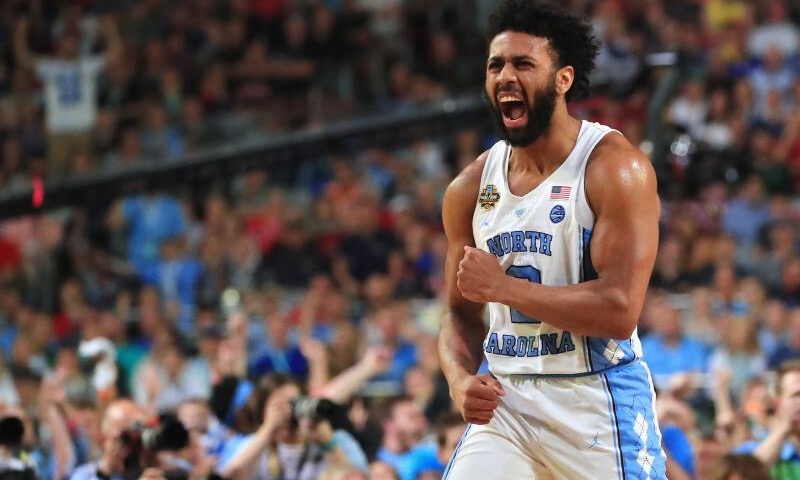It was expected that this season for the Tar Heels would turn out much like 2006 and 2010 in that it would be a rebuilding year. After back-to-back title game appearances and being crowned last year’s champions, it was assumed that much of the team would move on and Roy Williams would have to begin another rebuild. However, the outlook changed a bit when both Joel Berry II and Theo Pinson decided to return for their senior years. These were two of the biggest contributors to last year’s title team, combining to average 20.8 PPG, 7.7 RPG, and 7.3 APG. They will be called on to do even more this year with the losses of Justin Jackson, Kennedy Meeks, Isaiah Hicks, Tony Bradley, and Nate Britt.
Jackson was a finalist for the Naismith and Wooden Awards, so obviously, losing him will be crucial. To farther add to the injury, not only did Meeks and Hicks graduate, but Tony Bradley, who was supposed to have a lead role on this team, surprisingly decided to stay in the NBA Draft. This Carolina team’s main issues will be replacing the rebounding prowess of those four men. Their offense is based on the transition game and offensive rebounding, so without being among the best in grabbing offensive boards, UNC must rely on a smaller lineup to run up and down the floor quicker than anyone else in the country.
Joining Pinson and Berry in the stacked backcourt are Kenny Williams, the defensive specialist who suffered a torn ACL last winter, and Seventh Woods, the former YouTube sensation known for his handles. A newcomer to this group will be the Tar Heel’s top recruit, Jalek Felton. Felton, a five-star shooting guard who was ranked 28th in the 2017 class by ESPN, is the nephew of former Carolina point guard Raymond Felton, who was a member of the 2005 national championship squad. This unit possesses a ton of talent and will be where most of the production comes from this season.
Taking over a similar role to Jackson’s will be grad transfer Cameron Johnson. Johnson played three seasons at Pittsburgh before graduating and deciding to take his talents and year of eligibility to Chapel Hill. While there were some issues with the NCAA granting him this release, he was finally cleared to become a Tar Heel this summer. At Pitt, Johnson was relied upon to play a 3, but he may have to do more rebounding and scoring due to the way Carolina is currently configured. Last year Johnson averaged 11.9 points per game and 4.5 rebounds for the Panthers. For many grad transfers, the talent level changes how they play, but Johnson is experienced enough in the ACC to make a huge difference on this team, without him, Carolina may have been doomed this year.
Now for the group that faces the most adversity…the frontcourt. After losing the four most prominent men on the boards, this UNC team will have to replace a ton of size and skill. Size shouldn’t be the issue as the Heels will have three freshman ranging from 6’9-6’11. The only problem will be figuring out which of these guys will be able to contribute right away. In my opinion, Garrison Brooks might be the most game-ready player. Brandon Huffman should also play considerable minutes as the main big-man, while Sterling Manley may have the highest upside of the group, he will likely be a project player. Also returning to the frontcourt is Elite Eight hero Luke Maye. Maye was a relatively unknown player until his heroics in the Kentucky game led Carolina to the Final Four. He will have a much more prominent role this season and it will be interesting to see if he can handle it.
While this year’s team will definitely not be on the level that they have been the past two, this will still be a really good team. I see the Tar Heels finishing the year about third or fourth in the ACC and getting at least a 4 seed in the NCAA tourney and a possible Sweet Sixteen appearance. While this won’t be the most dominant team in the country and they will struggle a bit, there is enough pedigree to remain relevant.




